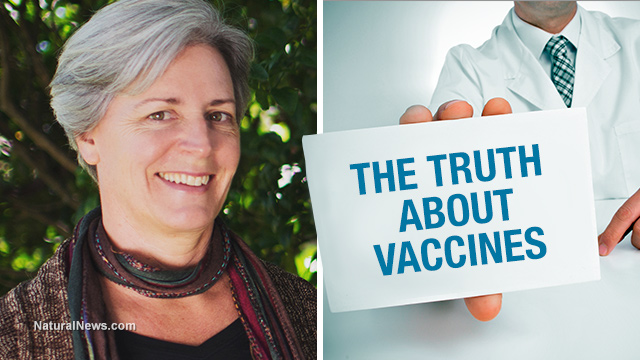Vaccine industry now pressuring Pinterest to censor all posts that don’t buy vaccine industry propaganda
10/05/2017 / By Vicki Batts

Pinterest is a picture-oriented social media network, perhaps most well-known for its abundance of do-it-yourself crafts, creative recipes and other such things. You can search for inspiration and ideas for virtually any hobby or event. Weddings, gardening, crafting — it’s all on Pinterest. But there’s another topic being discussed on the social media network– and Big Pharma is not happy about it. A new report pioneered by researchers at Virginia Commonwealth University shows that vaccines are becoming a hot topic on Pinterst — and most of what people are saying isn’t good.
Who would have thought — people are using social media to share their vaccine horror stories. But, as it turns out, freedom of speech doesn’t apply when you’re speaking about the potential dangers of vaccines — and vaccine cultists are doing their best to shut down anyone and anything that allows the truth about inoculations to prevail. While Pinterest is still behind social media behemoths like Facebook, it is a growing network with 100 million active users — certainly, nothing to sneeze at.
The research team at Virginia Commonwealth University (VCU) found that there were hundreds of “pins” on Pinterest about vaccines — and that nearly 75 percent of them were negative. Unsurprisingly, this revelation has prompted the VCU team to call for “better communication” about vaccination. Wouldn’t “better conservation” entail actually listening to the people who have witnessed the potential dangers of vaccines? You’d think so, but to vaccine cultists, “better communication” probably just means spreading more pro-vaccine propaganda.
The study’s lead author, Jeanine Guidry, is a Ph.D. student in Social and Behavioral Sciences at VCU. Guidry commented that she was “surprised” by the number of conversations about health “happening under the radar.”
To conduct their analysis, the team looked at 800 pins on Pinterest. In their evaluation, pins were deemed either “pro-vaccine” or “anti-vaccine.” Their results showed that 75 percent of the pins were decidedly against vaccination in one way or another. In contrast, analyses of Myspace and YouTube from the early 2000s showed that anti-vaccine posts only made up about 25 percent of content.
Guidry commented, “I tried to make sure I kept it in perspective, especially when people were using stories of their own children. It’s something very human. But these messages, as well as those by anti-vaccine organizations that spread fear, can do real harm.” So, people with children who’ve been harmed by vaccines ought to keep their mouths shut while other children are subjected to the same risks? Is telling your story about the very real potential of vaccine damage actually “fear-mongering” as vaccine-pushers would like you to believe? Or are parents who share their stories doing a public service by telling the truth about vaccines? And further, what gives Guidry or anyone else the right to judge the parents of children who’ve suffered at the hands of the corrupt vaccine agenda?
A similar study on anti-vaccine posts was just conducted by the University of Colorado at Boulder (CU Boulder). For their five-year study, researchers at CU Boulder examined over half a million posts on Twitter from around the country — and they too found that most conversations about vaccines were negative.
Has it occurred to any of these so-called scientists that perhaps there is a reason why people don’t have anything good to say about vaccines? While these vaccine-pushing elitists continue to wail about “public health,” thousands of people are taking to social media to share their very real stories about the aftermath of vaccines. There’s reality, and then there’s the narrative they want you to buy into. [Related: Keep up with the latest news on inoculations at Vaccines.news.]
Sources for this article include:
Tagged Under: Big Pharma, Censorship, corporate influence, corporate pressure, Pinterst, Social media, Vaccine dangers, vaccines



















